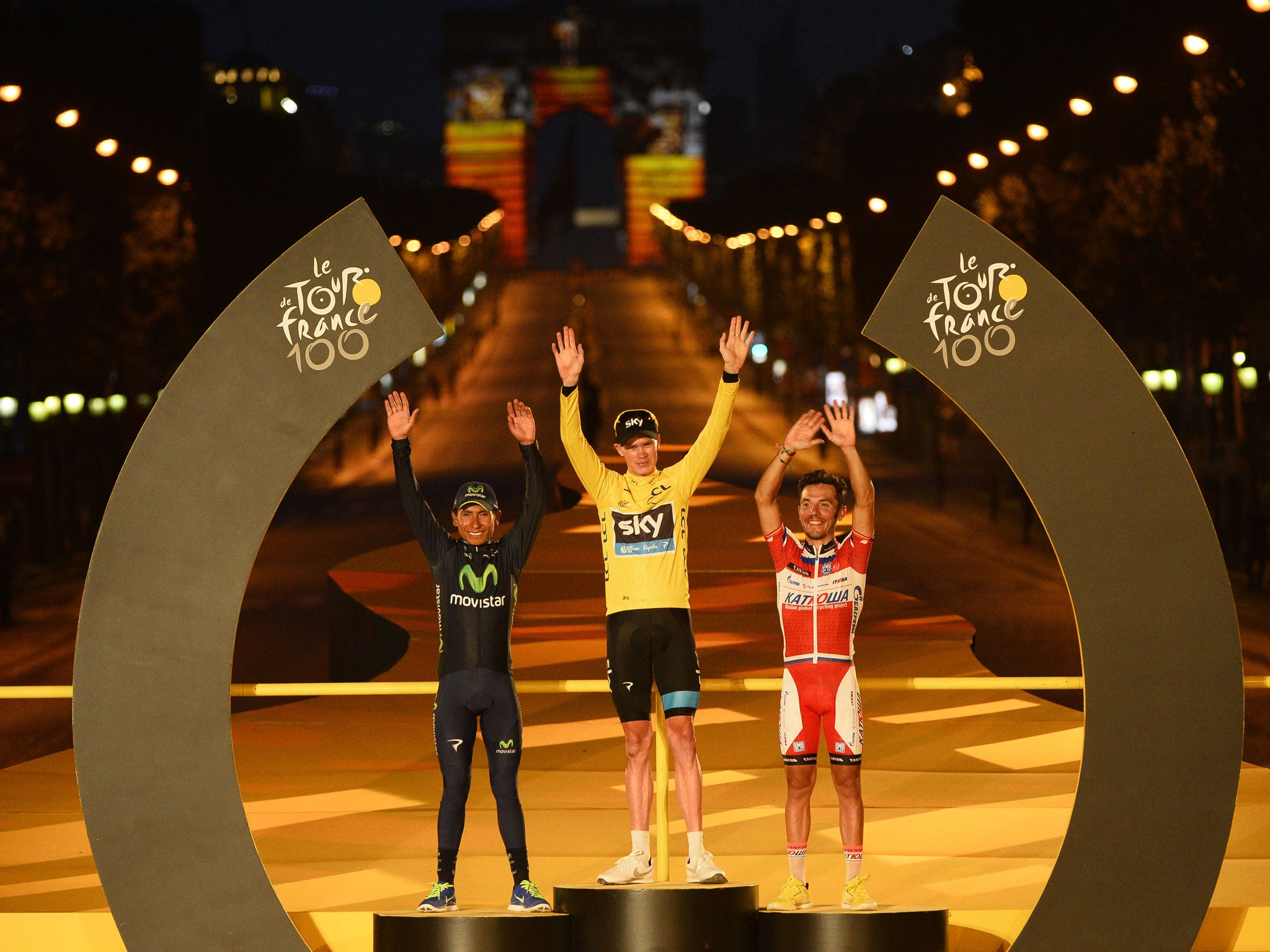Mickelson versus Froome? Golf's last round is cycling's rolling start
Golf is struggling to find leaders who can excite the heart

The sight of empty stands at Muirfield at the weekend had veteran commentator Peter Alliss smoothly groaning as only he can. What a tragedy those sun-baked benches were! How could golf-lovers everywhere not structure their diary around the British Open? How could they fail to flash their cash in order to broil while watching gaudily-dressed men swat a ball with a stick?
Well might the game's remaining fans, and its giant commercial backers, be in dismay: their obsession appears to be steadily losing favour. Attendances were more than 10 per cent down on the 2002 Open at the same course. Over in the USA, more courses have been closing than opening for some years now. Much more of this and the startlingly obvious might be generally accepted: golf is not cool. Tiger Woods was as credible as it got and... enough said.
An hour or two after the thoroughly middle-aged Phil Mickelson clutched the claret jug, confirming his Open win and the sagging unfashionable nature of the occasion, the almost baby-faced Chris Froome crossed the line in the centre of Paris to become overall winner of the 100th Tour De France. Son et lumiere on the Arc de Triomphe celebrated the event. The roadside spectators were probably in the millions, the TV audience worldwide most likely in the hundreds of millions. Froome looked fresh and he looked fit, if a little emaciated. When he spoke he seemed to speak to the whole world of viewers, inclusivity that was a world away from the stuffy exclusivities of golf.
As to his dress sense, not for him the random grotesque of golfers. Froome looked like the great athlete he is. While sponsor logos inevitably lead to a certain splatter, his Sky team Lycra had a snappiness to it - designed by the hot British cycle clothing company, Rapha, that also partners with Paul Smith and other major fashion designers - Froome was honed, sharp. He'll have to go some to compete with last year's champion, though, in the fashion stakes: Bradley Wiggins stepped confidently from team leader to style-setter, from yellow jersey wearer to finely tailored mod-influenced suits. That's cycling today. Meanwhile, golf is struggling to find leaders that don't look like role models for the Rotary Club. (Yes, I appreciate that's offensive to the fine charitable folks of Rotary, but they could have an image problem, too).
Now not only do top cyclists have a low-fat body more akin to fashion models than most, but the sport itself has so many other factors to make it more obviously attractive and open. You don't pay to watch at the roadside and anybody can have a go at the sport by getting on a bike and tagging along to a local club ride for free. Cycling is open to all to participate at some level, as opposed to golf's image of being expensive, 'members only', and hideously sexist and racist at times. For example, Muirfield still fails to embrace the equality of women (no female members at Muirfield or at Augusta, home of the Masters, which also took its time in accommodating African-Americans).
Of course, the naffness of golf, along with its age profile, is most marked in the UK and perhaps a little in the US, too. In Asia, it's booming. But you can't help feeling that in these fast-growth economies there's a cycle of status-life projection being played out. This may in time implode, while there will be rising concern around the environmental sustainability of many courses. Golf needs to clean up its act.
But don't bet against it doing so. A report for big golf sponsor HSBC, written by The Futures Company last year, projects the evolution of golf so as to weather its storms and emerge strengthened. Survival strategies include short-form versions (just six holes instead of 18) and more environmentally-friendly maintenance. If golf was more accessible, affordable, and fitted into the diary and the environment... well, it could yet grow anew. Let's hope that at least means we won't see broadcasters ignorantly funding Muirfield's sexism in another 11 years from now.
Meanwhile, cycling can continue to boom or it could yet hit the barriers. New doping scandals may emerge to damage the commercial appeal of the spectator sport, while rising road fatalities and injuries put a real pressure on road engineers and local authorities to rapidly change their response.
But for personal and professional reasons, I have to fancy cycling over golf. Those empty stands in Scotland, those packed boulevards in Paris, they meant something.
If you were a private equity group looking to invest in a sport with strong growth potential in virtually all markets internationally, at all ages and all earnings levels, where no competitors have a lock on the resources or the customers, and where general cultural values (environmental, social, health, etc.) are in your favour... well, you won't be investing in golf.
Lewis Blackwell is a management consultant and marketing expert. He rides a bike for sport and transport efficiency. He was once a member of Colonsay golf club – the only way to play the game and manage a sustainable course, he would say.
Join our commenting forum
Join thought-provoking conversations, follow other Independent readers and see their replies
Comments
Bookmark popover
Removed from bookmarks